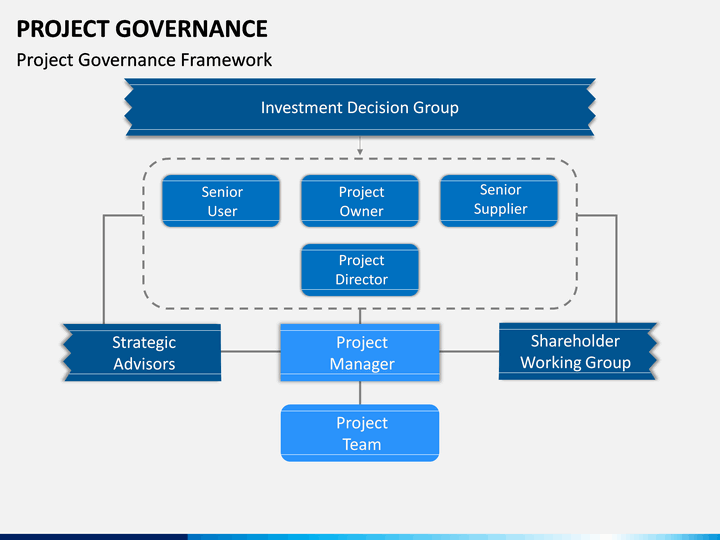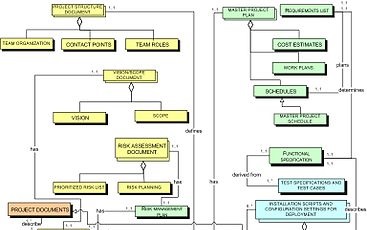
What I Mean by 'Product Data' As a product manager, you're sitting on a lot of data and have the ability to get even more. This is the kind of experimental design environment behavioral economists fantasize about (I'll revisit this in my next article). But it can also cause a lot of problems trying to manage and use all that data. 10,886 data product manager jobs available. See salaries, compare reviews, easily apply, and get hired. New data product manager careers are added daily on SimplyHired.com. The low-stress way to find your next data product manager job opportunity is on SimplyHired. There are over 10,886 data product manager careers waiting for you to apply! Skills You Need to be a Product Manager. Successful product managers are ambassadors of the.
Jun 27, 2019
Every business has data. Most businesses use their data. But not enough use their data well.

Why? In large part, it's because as the supply of data has exploded and the demand for access has grown, the existing systems simply couldn't keep up with the squeeze.
Data analysts were trained to be a service department. Request comes in. Analyst prioritizes and responds. Requestor has a follow-up. Analyst helps. In a world of small data and limited data usage, it works great.
But in today's world, this unleveraged model doesn't scale. There are too many requests for the analysts available, and there's too much data for analysts to remain familiar with all of it. What's needed instead are data products. And to build successful data products, you need new skills on your team.

The situation isn't that different from how software engineering evolved in the recent past. Companies realized that engineers should build and maintain reusable products—customer-facing apps, CRMs, CMSs, and ERPs—rather than just hand-coding responses to one-off requests. And to do that effectively, they needed partners who could shepherd the product through its entire lifecycle: research, scope definition, prototyping, early releases, refinement, user testing, launch, bug fixes, and upgrades.
Data Product Manager Salary
Enter the product manager.
Businesses face a similar challenge today when it comes to data. Taking full advantage of the benefits of today's data-rich landscape requires a shift from a service model to a product model. But too many companies are still leaving data-product-building to data engineers and data analysts.
Those roles are critical, of course, but it's time to embrace data product managers. Building effective products is simply impossible unless someone takes the time to understand which teams will use the data and how, to research how to meet each team's unique data needs, to test out different solutions, to observe and onboard people with the data tool, and to gather feedback and iterate on the data product.
Too many data professionals continue with a service mindset, building the data tool they think teams need or exactly what business users request. Then they wipe their hands and move on. They may not have time or motivation to find a champion for the tool, teach people how to use it, answer questions as they come up in the day-to-day, or field additional requests for improvements.
And too often, data products built this way fail. Products are built with good intentions, but they're quickly abandoned because they're too hard for business users to use, or don't actually meet the intended need. Or worse, they may present authoritative-seeming answers that are just plain wrong because without an analyst constantly sanity-checking the data, bad data may slip through.
I can't count the number of times I've seen people take bad data and run with it because 'the tool told me this was the answer.' Whether it's filtering some critical data incorrectly, or misunderstanding what a metric actually means, or taking a user's request too literally, the impact is the same. And while it's easy for data professionals to blame users, the reality is, when you're building products, it's your job to think about error handling and how to prevent problems proactively.
That's why deeply understanding the product's intended usage upfront is so important—and why having a data product manager is such a key advance. In fact, on the very best data teams, it's not just a product manager, but a host of other new roles who collaborate to make data products great.
A data translator works on the business side, but has a deep understanding of what the data means and how it's structured. She might be engaged to teach the product manager and data analysts about the data. A data ambassador—the person on a team who uses data most often and most comfortably—might be tasked with coming up with an onboarding and feedback plan for a new data product. And having an executive as a data champion is a crucial lever for getting people to give new data products a try.

But if you're only going to make one change to the way you approach data, the data product manager is the place to start. She can take responsibility for the entire lifecycle of the way that data is used (or not) within a department or company. And that focus won't just improve your data culture, it'll also make your data teams more efficient.
Freeing data analysts and engineers from the need to squeeze product functions into their already packed schedule lets them focus on their job: building tools well and efficiently. And it makes sure that they're building the right things and anticipating all the possible ways people will use their tools.
That's the only way that companies will get the full value of their data. Because in today's environment, with so much data and so many people clamoring for access, the service model of yesterday simply isn't feasible. The transition to a world of data products is happening, the question is whether we'll take the lessons from other disciplines and expand our teams' competencies now, or whether we'll stumble along with the status quo and learn the lesson the slow way.
Data Product Manager
Data product managers haven't been around for very long, but they are a special kind of managers. We still hear and use 'product manager' more often, but the role has evolved over the years. Because of the massive changes in the tech and business landscapes, product managers deal with more information than they used to. Sometimes people say 'product manager' when they talk about 'data product manager' without really knowing the difference. So what's the distinction? Data.
Data Product Manager Jobs
What is a product manager?
The product manager is the product expert. Everything from ideation and research to design and performance analysis is all part of the job. Product management means being a jack of all trades and managing every stage of the product life cycle. That means any and all details about the product are the product manager's responsibility. Additionally, product managers must also be able to clearly communicate the product internally and to customers. And if all goes well, you'll have a successful product launch.
What makes a data product manager different?
Think of it this way: All data product managers are product managers, but not all product managers are data product managers. Both roles require market research and testing viability, developing strategies, and product development, almost everything a general product manager does. But the data product manager does something the general product manager does not. The key difference is the use of data.
From the beginning, data is the foundation, product, and the goal. A data product manager delves deeper into big data, using algorithms and statistics to produce a final product and then analyze the data produced by the product. The position combines many roles but doesn't favor any single one. Programming, designing, engineering, and other skills are all encompassed into this manager role. It's this combination that produces an expert manager who can handle every stage of development.
Data Product Manager
Data related skills like algorithms, machine learning, and UI/UX are skills not used with simple products but are a must for data products. This is what makes the data product manager such a desirable and necessary employee.
The future of data product managers

What I Mean by 'Product Data' As a product manager, you're sitting on a lot of data and have the ability to get even more. This is the kind of experimental design environment behavioral economists fantasize about (I'll revisit this in my next article). But it can also cause a lot of problems trying to manage and use all that data. 10,886 data product manager jobs available. See salaries, compare reviews, easily apply, and get hired. New data product manager careers are added daily on SimplyHired.com. The low-stress way to find your next data product manager job opportunity is on SimplyHired. There are over 10,886 data product manager careers waiting for you to apply! Skills You Need to be a Product Manager. Successful product managers are ambassadors of the.
Jun 27, 2019
Every business has data. Most businesses use their data. But not enough use their data well.
Why? In large part, it's because as the supply of data has exploded and the demand for access has grown, the existing systems simply couldn't keep up with the squeeze.
Data analysts were trained to be a service department. Request comes in. Analyst prioritizes and responds. Requestor has a follow-up. Analyst helps. In a world of small data and limited data usage, it works great.
But in today's world, this unleveraged model doesn't scale. There are too many requests for the analysts available, and there's too much data for analysts to remain familiar with all of it. What's needed instead are data products. And to build successful data products, you need new skills on your team.
The situation isn't that different from how software engineering evolved in the recent past. Companies realized that engineers should build and maintain reusable products—customer-facing apps, CRMs, CMSs, and ERPs—rather than just hand-coding responses to one-off requests. And to do that effectively, they needed partners who could shepherd the product through its entire lifecycle: research, scope definition, prototyping, early releases, refinement, user testing, launch, bug fixes, and upgrades.
Data Product Manager Salary
Enter the product manager.
Businesses face a similar challenge today when it comes to data. Taking full advantage of the benefits of today's data-rich landscape requires a shift from a service model to a product model. But too many companies are still leaving data-product-building to data engineers and data analysts.
Those roles are critical, of course, but it's time to embrace data product managers. Building effective products is simply impossible unless someone takes the time to understand which teams will use the data and how, to research how to meet each team's unique data needs, to test out different solutions, to observe and onboard people with the data tool, and to gather feedback and iterate on the data product.
Too many data professionals continue with a service mindset, building the data tool they think teams need or exactly what business users request. Then they wipe their hands and move on. They may not have time or motivation to find a champion for the tool, teach people how to use it, answer questions as they come up in the day-to-day, or field additional requests for improvements.
And too often, data products built this way fail. Products are built with good intentions, but they're quickly abandoned because they're too hard for business users to use, or don't actually meet the intended need. Or worse, they may present authoritative-seeming answers that are just plain wrong because without an analyst constantly sanity-checking the data, bad data may slip through.
I can't count the number of times I've seen people take bad data and run with it because 'the tool told me this was the answer.' Whether it's filtering some critical data incorrectly, or misunderstanding what a metric actually means, or taking a user's request too literally, the impact is the same. And while it's easy for data professionals to blame users, the reality is, when you're building products, it's your job to think about error handling and how to prevent problems proactively.
That's why deeply understanding the product's intended usage upfront is so important—and why having a data product manager is such a key advance. In fact, on the very best data teams, it's not just a product manager, but a host of other new roles who collaborate to make data products great.
A data translator works on the business side, but has a deep understanding of what the data means and how it's structured. She might be engaged to teach the product manager and data analysts about the data. A data ambassador—the person on a team who uses data most often and most comfortably—might be tasked with coming up with an onboarding and feedback plan for a new data product. And having an executive as a data champion is a crucial lever for getting people to give new data products a try.
But if you're only going to make one change to the way you approach data, the data product manager is the place to start. She can take responsibility for the entire lifecycle of the way that data is used (or not) within a department or company. And that focus won't just improve your data culture, it'll also make your data teams more efficient.
Freeing data analysts and engineers from the need to squeeze product functions into their already packed schedule lets them focus on their job: building tools well and efficiently. And it makes sure that they're building the right things and anticipating all the possible ways people will use their tools.
That's the only way that companies will get the full value of their data. Because in today's environment, with so much data and so many people clamoring for access, the service model of yesterday simply isn't feasible. The transition to a world of data products is happening, the question is whether we'll take the lessons from other disciplines and expand our teams' competencies now, or whether we'll stumble along with the status quo and learn the lesson the slow way.
Data Product Manager
Data product managers haven't been around for very long, but they are a special kind of managers. We still hear and use 'product manager' more often, but the role has evolved over the years. Because of the massive changes in the tech and business landscapes, product managers deal with more information than they used to. Sometimes people say 'product manager' when they talk about 'data product manager' without really knowing the difference. So what's the distinction? Data.
Data Product Manager Jobs
What is a product manager?
The product manager is the product expert. Everything from ideation and research to design and performance analysis is all part of the job. Product management means being a jack of all trades and managing every stage of the product life cycle. That means any and all details about the product are the product manager's responsibility. Additionally, product managers must also be able to clearly communicate the product internally and to customers. And if all goes well, you'll have a successful product launch.
What makes a data product manager different?
Think of it this way: All data product managers are product managers, but not all product managers are data product managers. Both roles require market research and testing viability, developing strategies, and product development, almost everything a general product manager does. But the data product manager does something the general product manager does not. The key difference is the use of data.
From the beginning, data is the foundation, product, and the goal. A data product manager delves deeper into big data, using algorithms and statistics to produce a final product and then analyze the data produced by the product. The position combines many roles but doesn't favor any single one. Programming, designing, engineering, and other skills are all encompassed into this manager role. It's this combination that produces an expert manager who can handle every stage of development.
Data Product Manager
Data related skills like algorithms, machine learning, and UI/UX are skills not used with simple products but are a must for data products. This is what makes the data product manager such a desirable and necessary employee.
The future of data product managers
Data Product Manager Salary
Digital data isn't going away anytime soon (or ever, probably). And the role of data product managers will only continue to grow. Remember, data is the currency in today's tech scene, so it makes sense that the data product manager is rising and why you should know just how important it is. So treasure your data product managers. Because they're special.

